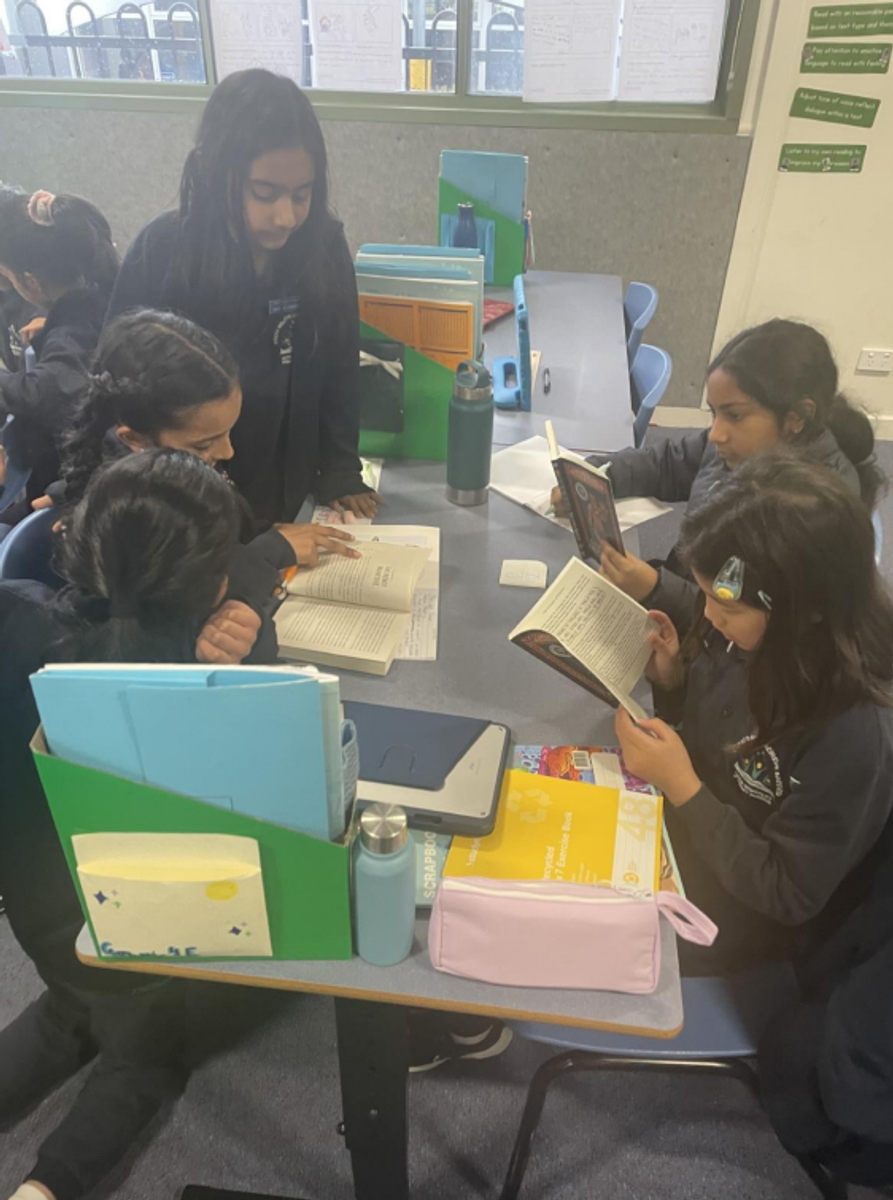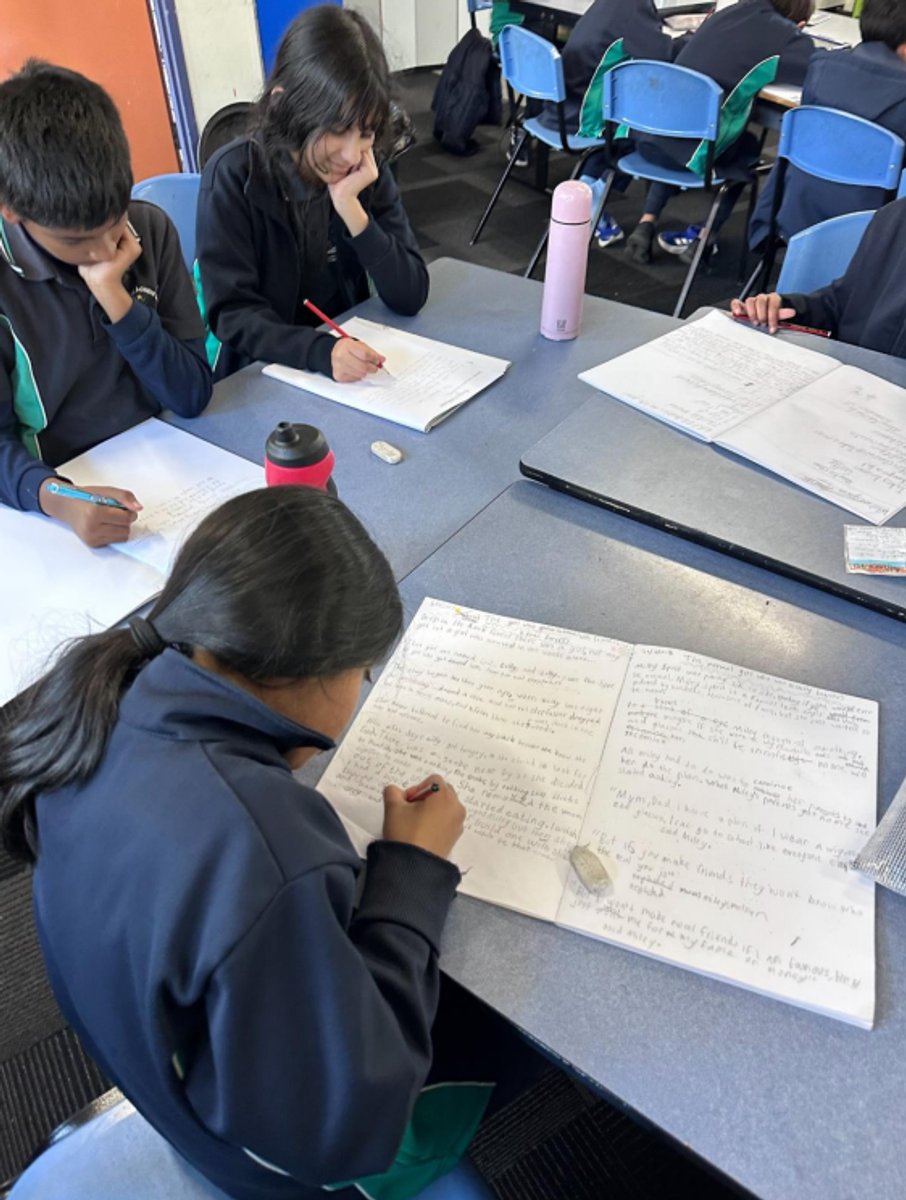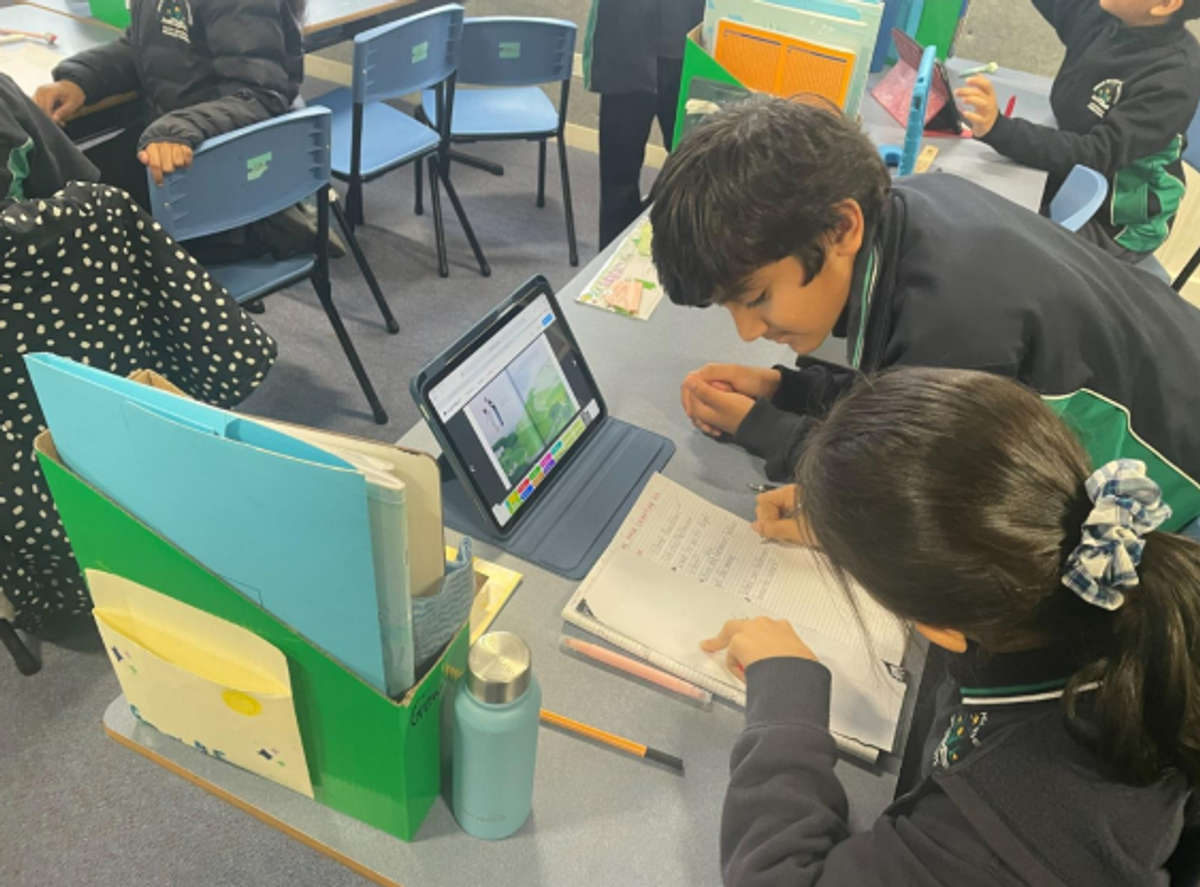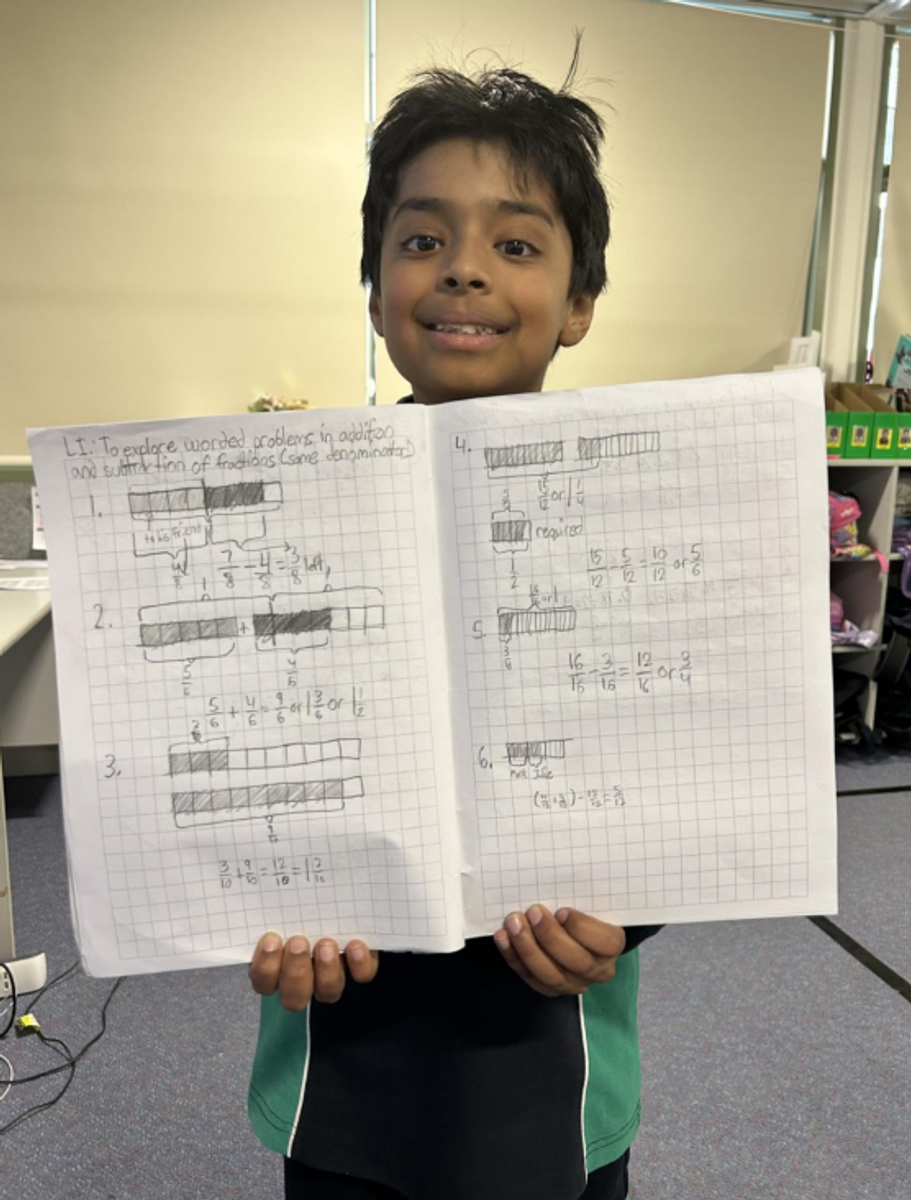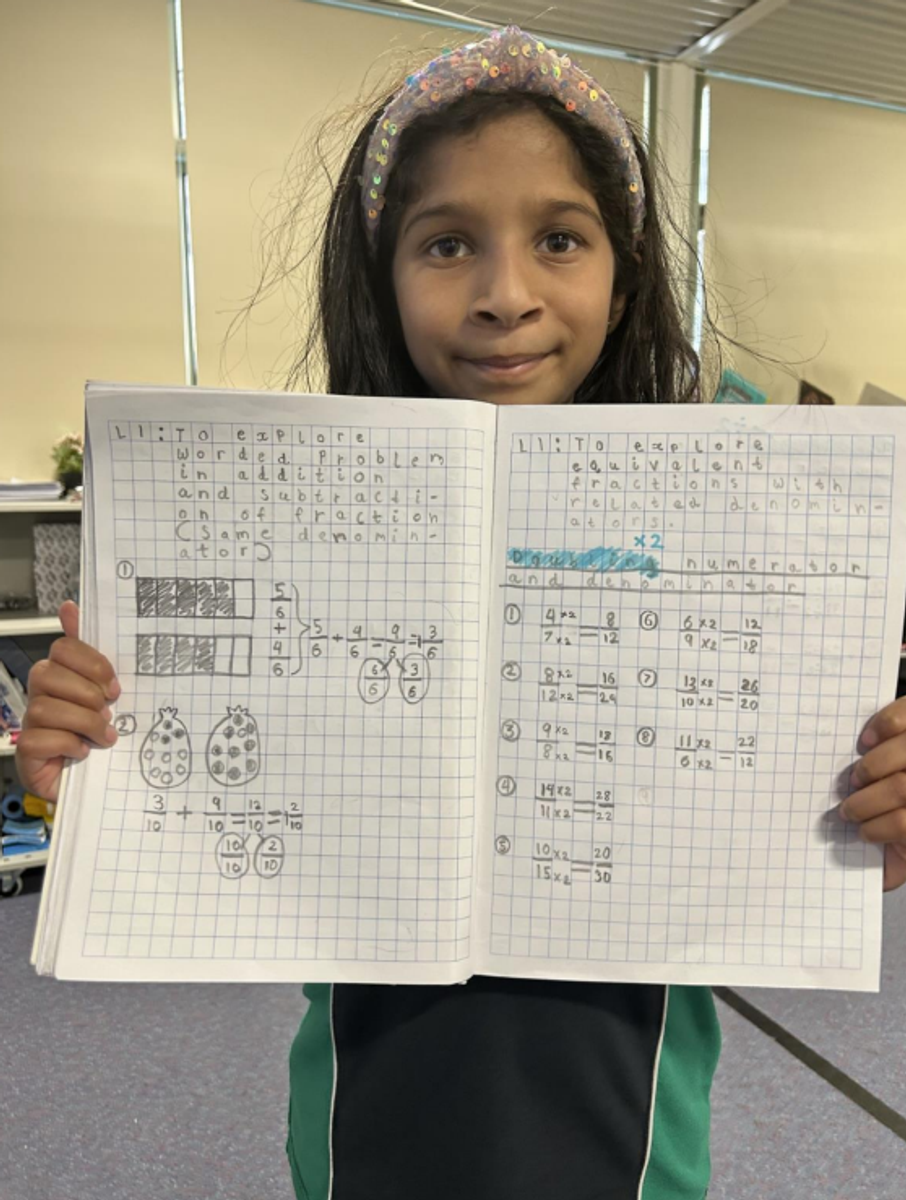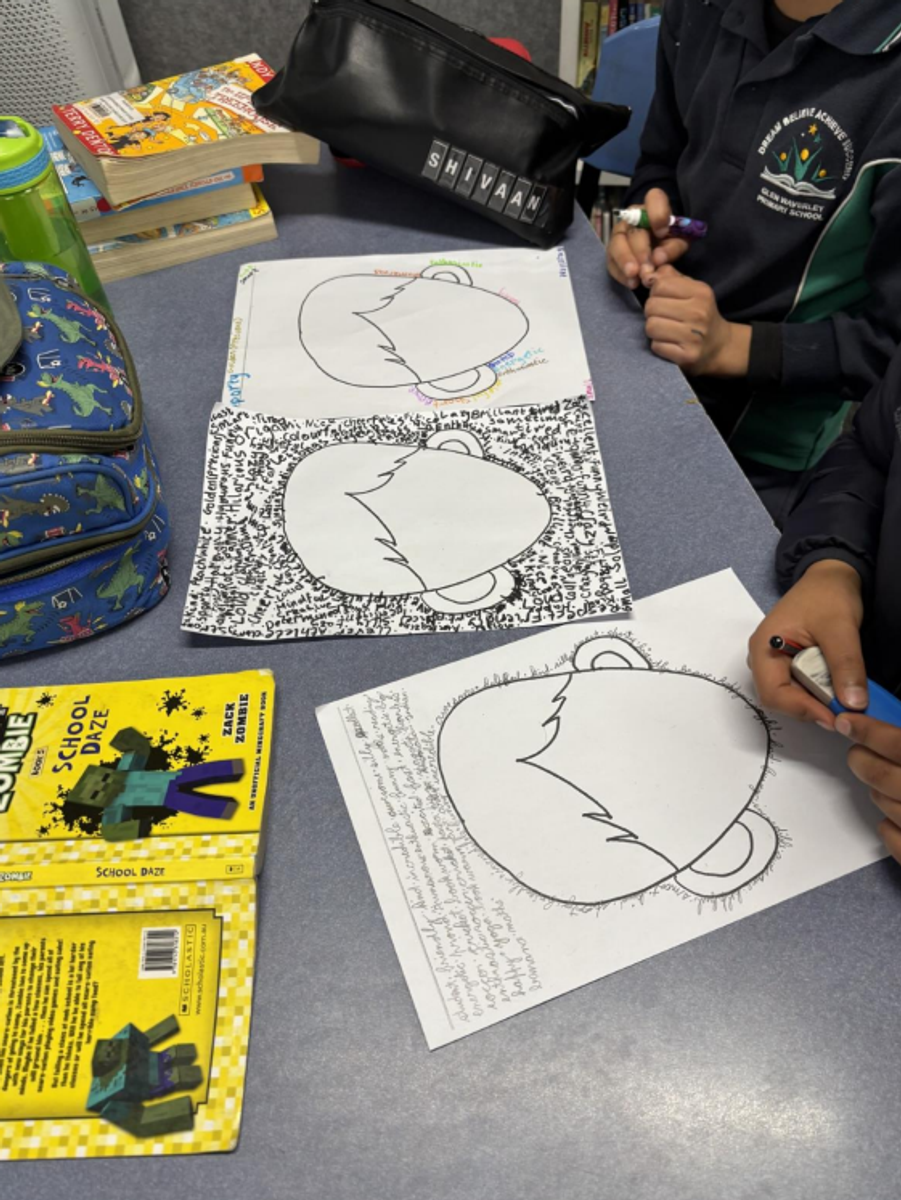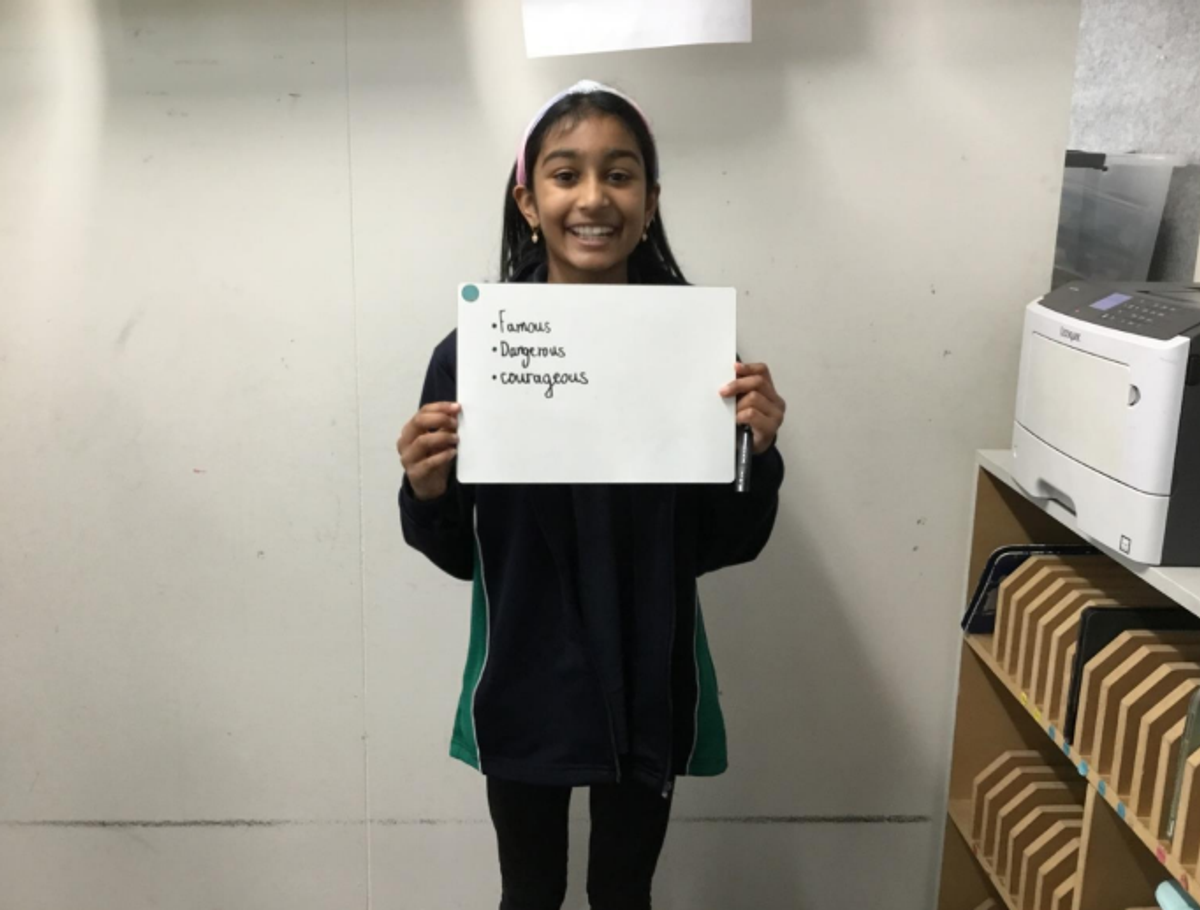Term 3 Level 4 Newsletter
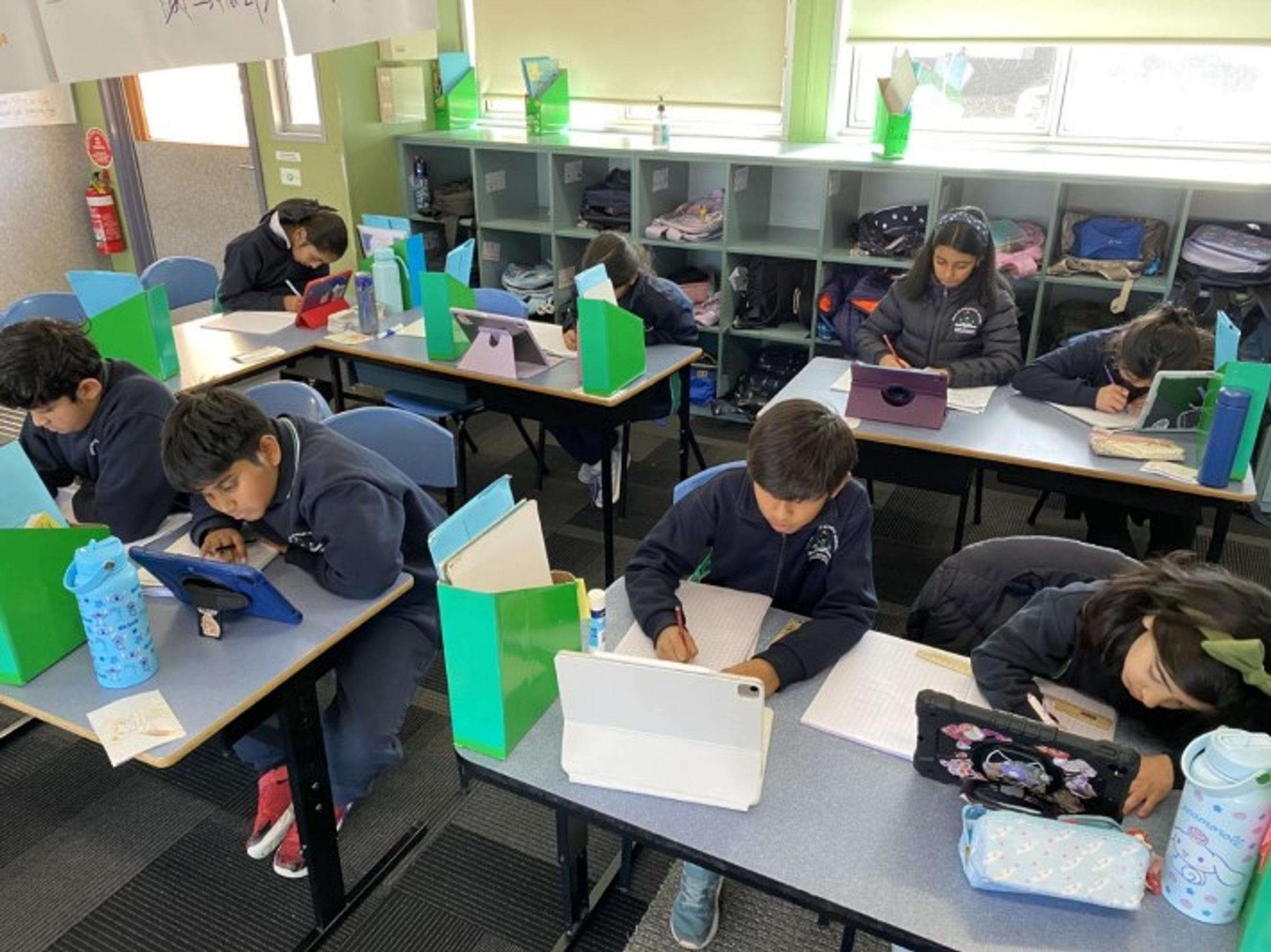
English
Reading
In Term 3, students will strengthen their reading skills by focusing on key comprehension strategies. These include identifying main ideas, building literal meaning, asking questions before, during and after reading, and justifying their thinking using evidence. Students will use biographies and memoirs to practise these skills in real reading contexts.
Through these texts, students will also explore how authors share important ideas, how key events relate to the overall theme, and how media choices like images and layout can influence the way we understand a text. These skills help students think more deeply about what they read and make meaningful connections.
Each week, students will take part in Literature Circles and Sustained Reading to build stamina, fluency and confidence. Literature Circle roles like Word Wizard, Question Creator and Character Tracker help guide student thinking and encourage rich discussion.
Our reading program follows the Victorian Curriculum 2.0 and the CAFE Reading Framework with a focus on strategies like visualising, questioning, and summarising. These tools help students transfer their learning across subjects and become more confident, independent readers.
Key Vocabulary:
- Literal meaning: What the words in a text actually say or mean, without looking for any hidden or deeper meaning.
- Main idea: The most important point or message the author wants the reader to understand from a paragraph or whole text.
- Theme: The big idea or message in a story. It’s what the author wants the reader to think about or learn, such as friendship, courage, or kindness.
- Biography: A true story written about a real person’s life, focusing on important events and achievements.
- Memoir: A personal story written by someone about a memory or time in their life, often showing how they felt or what they learned.
Writing
This term, students will focus on developing their skills to write biographical and memoir texts. In biographical writing, students will learn to plan, research and structure their texts by exploring the life of a famous individual. This includes an opening statement (introducing the person and some general information), significant life events, achievements, concluding statements (legacy and impact), and a bibliography. Students will expand their vocabulary by exploring the role verbs, pronouns and tenses play in creating their biography.
In memoir writing, students will reflect and create texts that detail important events and achievements in their own life. They will structure their writing using reflective thinking that focuses on the details and emotions surrounding the event.
Key Vocabulary:
- Past Tense
- Pronoun
- Chronological order
- Third person
How can you support your child’s English learning at home?
Reading sample texts: Encourage your child to read about different historical figures and have them identify significant life events and achievements.
Interview a friend or family member: Sit down with a family member or friend and ask them about their life. Find out about where they group up, life events and achievement they might have had. Encourage your child to be curious and ask lots of questions.
Significant life events: Think about a significant event in your own life. List the details of the event and think about the different emotions you felt during this time.
Spelling
In Spelling, Year Four students will continue to develop their spelling skills through explicit lessons focused on word-level reading, spelling patterns, and morphology, aligned with the English Victorian Curriculum. Students will continue exploring the various suffix types such as ‘-ous’ and ‘-ious’, learning how to form adjectives such as mysterious and precious. Additionally, within Spelling students will review spelling rules, short vowel phonemes that represent vowels such as ‘ou’ for /u/ and silent letter phonemes such as wr, kn, mn. Each session will also include vocabulary development, where students will discuss and practise spelling new words from class texts to deepen their understanding of meaning and usage.
Mathematics
This term in Mathematics, students will engage in a rich and structured exploration of key concepts that strengthen their number sense and spatial reasoning. Our focus areas include Fractions, Decimals, Location, Angles and Measurement.
In our Fractions unit, students will build fluency and flexibility as they work with like and related denominators. They will learn to add and subtract fractions, interpret and solve worded problems, and explore the concept of equivalence. As they progress, students will be encouraged to reason mathematically and make connections between visual models and abstract representations.
The Decimals unit will extend students' understanding of place value to the thousandths, where they will round, rename and represent decimals in both standard and non standard forms. These skills will be applied to real world contexts such as measuring length and mass to more than two decimal places, allowing students to see the relevance of decimals in everyday life.
In Location, students will work within the first quadrant of the Cartesian plane. They will identify, plot and describe coordinates, with an emphasis on using spatial language to locate and represent shapes.
Our Angles and Geometry lessons will support students to measure, draw and classify a variety of angles and polygons. They will construct regular and irregular shapes, calculate interior angles, and investigate tessellations, enhancing their understanding of shape properties and symmetry.
Finally, in Measurement, students will compare, select and use appropriate units to measure length, mass and capacity. They will apply these skills through practical tasks that involve estimating, recording and solving real-world problems using metric units.
Throughout the term, students will be encouraged to reason, problem solve and communicate their thinking as mathematicians. These experiences will help them develop accuracy, confidence and flexibility in using mathematical concepts across a range of contexts.
Key Vocabulary:
Fractions | Decimals | Location (Cartesian Plane) | Angles | Measurement |
numerator denominator equivalent fractions like denominators related denominators simplify add subtract worded problems fraction bar part-whole
| decimal point tenths hundredths thousandths expanded form standard form rounding estimate rename mass length place value
| coordinates x-axis y-axis quadrant origin horizontal vertical plot grid shape ordered pair
| acute angle right angle obtuse angle straight angle reflex angle revolution protractor measure degrees vertex polygon interior angle regular polygon irregular polygon tessellation
| length mass capacity volume units millimetres (mm) centimetres (cm) metres (m) kilometres (km) grams (g) kilograms (kg) millilitres (mL) litres (L) estimate compare accuracy |
How can you support your child’s Mathematics learning at home?
Supporting your child’s learning at home can be simple and meaningful. Here are some ways you can help your child feel confident and connected to Mathematics in everyday life:
Build confidence with everyday conversationsEncourage your child to talk about how they use Maths in their daily life. This could be as simple as noticing shapes around the house, talking about fractions when sharing food, or discussing time and schedules. Helping them make these connections builds confidence and purpose.
Play games that involve maths thinkingGames like Uno, Monopoly or card games can support number fluency, strategy and mental calculations. Even simple activities like playing with dominoes or completing puzzles can strengthen spatial awareness and logic.
Explore real world measurement togetherInvolve your child in activities like cooking (using fractions and units), measuring ingredients, comparing weights at the supermarket, or estimating distances on a walk. These hands-on experiences make abstract maths concepts more concrete and relatable.
Practise with short, regular conversationsTalk through problems using "how" and "why" questions rather than focusing only on answers. For example, "How did you figure that out?" or "Why do you think that strategy worked?" This supports reasoning and encourages your child to explain their thinking clearly.
Inquiry
Term 3 Inquiry Question: How does the media shape how we see ourselves?
This term in Inquiry, students will be exploring media arts and expanding their critical thinking skills. They will focus on their personal identity and how they perceive themselves in the media.
Students will be investigating how they engage with media and how media is used to ‘target’ specific audiences. They will gain a greater understanding of media languages and how technologies are used for different audiences.
Students will explore influence in the media; both positive and negative. They will gain a greater understanding of how to engage positively with media and how to view others with fairness. This is an integral part of growing up in society as media is available to everyone at the touch of a button. Just because we read it doesn’t mean that it is correct. Students will be able to demonstrate their understanding of how media has influenced our perspective over time.
Global Goal: 16. Peace, Justice and Strong Institutions
Promote peaceful and inclusive societies for sustainable development, provide access to justice for all and build effective, accountable and inclusive institutions at all levels. Goal 16.2 was chosen as it revolves around the protection and safety of children. This directly relates to the media and how students use it and what they are exposed to. Goal 16.2 also coincides with our Cyber-Safety unit, when we discuss online safety and security.
Key Vocabulary:
- Media
- Blog
- Podcast
- Broadcast
- Production
- Informal and formal language (for the media)
- Technologies
- Perspectives (positive and negative)
How can you support your child’s Inquiry learning at home?
To support your child at home this term you could:
- Have open discussions with them about screen times
- Talk about what they are watching/playing
- Dicuss what to do if they see something inappropriate
- Discuss different media types – perhaps what you used to use as child (newspaper, magazine, watching the News on TV, radio)
Wellbeing
The Resilience Project
In Term Three, Year Four students will be participating in a series of The Resilience Project lessons focused on building emotional literacy and empathy.
Students will explore a range of new and familiar emotions to expand their emotional vocabulary. They will create an emotional word bank, naming and illustrating 16 different emotions to help strengthen their ability to understand and express how they feel.
Later in the term, students will take part in empathy-focused lessons where they will learn to recognise and respond to the emotions of others. Through role plays, they will explore how small, thoughtful gestures can make a positive difference in someone’s day and demonstrate their growing understanding of empathy.
Key Vocabulary:
Emotion – A feeling such as happiness, sadness, anger, or fear.
Empathy – Understanding how someone else feels and showing care or support.
Gesture – A small action that shows kindness or thoughtfulness.
Expression – The way we show our emotions through words, actions, or facial cues.
How can you support your child’s Wellbeing learning at home?
Talk about feelings together – Encourage your child to name how they’re feeling and why, using a wide range of emotion words.
Model empathy – Show kindness and understanding in everyday situations and talk about how your actions affect others.
Celebrate small gestures – Notice and praise small acts of kindness within the family to reinforce the value of caring for others.
Cyber Safety
Over the coming weeks, students in Level Four will engage in a series of Cyber Safety Project lessons designed to build their confidence and sense of responsibility when navigating the digital world. They will explore ways to recognise and manage their emotional responses to different online experiences. Students will discuss how to respond thoughtfully rather than react impulsively, supporting the development of emotional awareness and self-regulation in digital spaces. They will investigate the concept of peer pressure and consider how influence from others can affect their choices online. Through guided conversations, they will discover strategies to stay strong and make decisions that reflect their values.
Students will take part in role plays that highlight how online inclusion and exclusion can impact their emotions, helping them build empathy and resilience while exploring the concept of FOMO—Fear of Missing Out. They will be challenged to reflect on their digital habits by categorising online activities as either creation or consumption and will then work on developing a balanced plan to support healthy and purposeful technology use. These lessons will support students in developing positive digital behaviours that promote their wellbeing and online safety.

